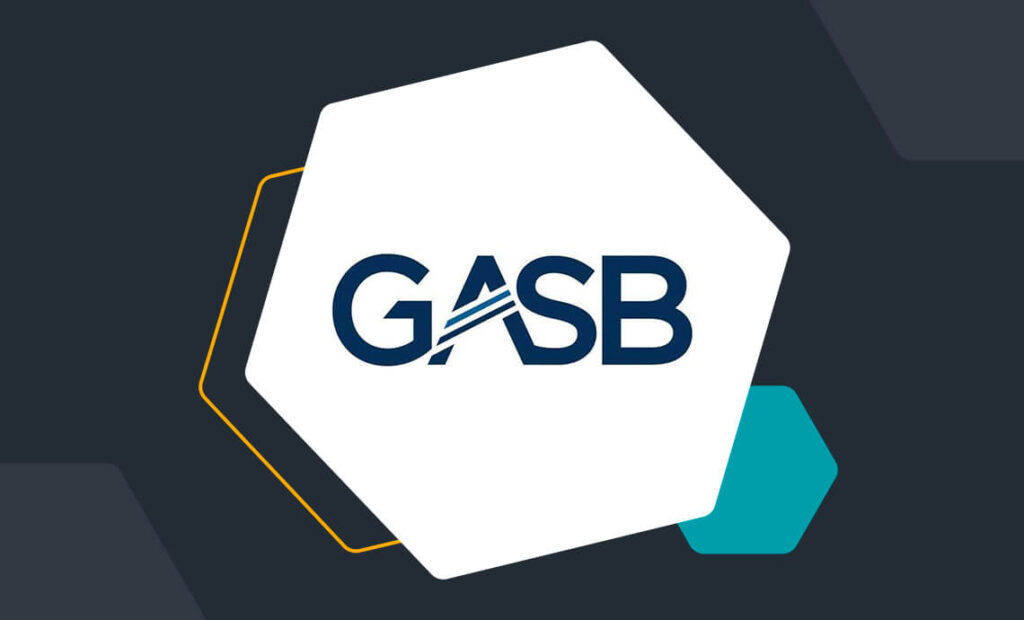Local governments may need to adhere to the financial reporting and accounting standards set by the Governmental Accounting Standards Board (GASB). The GASB sets the generally accepted accounting principles (GAAP) to promote consistent, clear financial reporting among government entities.
If you are concerned about whether your government organization adheres to the GASB standards, turn to us at MIP®. You can use our fund accounting solution to meet the needs of your organization. Below, we cover what the GASB is, the difference between the GASB and the Financial Accounting Standards Board (FASB), and the current GASB standard.
What Is the Governmental Accounting Standards Board (GASB)?
The Governmental Accounting Standards Board (GASB) is a private, non-profit organization that establishes accounting and financial reporting standards for state and local governments in the United States. It was established in 1984 and is based in Norwalk, Connecticut.
What Does the GASB Do?
The GASB’s mission is to improve financial reporting by state and local governments and to ensure that their financial statements provide accurate, useful, and reliable information to users. The GASB develops accounting and financial reporting standards that are used by state and local governments to prepare their financial statements. The GASB standards cover a range of topics, including:
- Financial reporting
- Accounting for infrastructure
- Accounting for capital assets
- Accounting for pensions and other post-employment benefits
Who Is on the GASB?
The GASB operates independently of government and other organizations and is overseen by a board of seven members who are appointed by the Financial Accounting Foundation (FAF). The FAF is responsible for selecting the GASB members and funding its operations.

The GASB plays a critical role in promoting transparency and accountability in state and local government financial reporting. The board’s standards help ensure that financial statements are prepared in accordance with generally accepted accounting principles (GAAP) and provide users with the information they need to make informed decisions about government finances. The GAAP standards are also set by the FASB, the United States Securities and Exchange Commission (SEC), and the American Institute of Certified Public Accountants (AICPA).
Who Must Follow the GASB Standards?
Many individuals and organizations use the GASB standards and information to make investments and influence public policy, such as:
- Taxpayers
- Legislators
- Oversight bodies
- Holders of municipal bonds
- State Boards of Accountancy
- State and local governments
- The American Institute of CPAs (AICPA)
A government official may also use the GASB standards to illustrate their financial responsibility and accountability.
How Does the GASB Set Its Standards?
The process of developing GASB standards is rigorous and includes the following steps:
- Identification of the issue: The GASB identifies an issue or topic that requires standard-setting activity. This can come from various sources, such as requests from stakeholders or emerging issues in the government sector.
- Research and analysis: Once an issue is identified, the GASB conducts research and analysis to gather information about the topic. This includes reviewing existing literature, consulting with experts, and soliciting feedback from stakeholders.
- Preliminary views: Based on the research and analysis, the GASB develops preliminary views on the issue. These views are intended to provide guidance and stimulate discussion among stakeholders.
- Public hearings: The GASB conducts public hearings to solicit feedback from stakeholders on the preliminary views. These hearings are an opportunity for stakeholders to express their views on the issue and provide feedback on the proposed standards.
- Exposure draft: After the public hearings, the GASB develops an exposure draft, which is a proposed standard that is made available for public comment. The exposure draft includes a summary of the issue, a description of the proposed standard, and a request for feedback from stakeholders.
- Comment period: Stakeholders are given a specified period to review and comment on the exposure draft. The GASB considers all comments received during the comment period in developing the final standard.
- Final standard: Based on the comments received during the exposure draft comment period, the GASB develops a final standard. The final standard is approved by the GASB members and issued to the public.
The GASB standards development process is designed to be transparent and inclusive, ensuring that stakeholders have a voice in the creation of accounting and financial reporting standards for state and local governments.
What Is the Difference Between GASB and FASB?
The Governmental Accounting Standards Board (GASB) and the Financial Accounting Standards Board (FASB) are two organizations responsible for setting accounting standards in the U.S. Both are independent, non-governmental entities that are used for setting standards regarding nonprofit accounting.
1. Different Areas of Focus
The main difference between GASB and FASB is their focus. GASB is responsible for setting state and local government accounting standards, including:
- Cities
- Counties
- School districts
- Special-purpose districts
In contrast, FASB sets accounting standards for private sector companies, non-profit organizations, and other entities that are not considered government entities.
2. Different Types of Entities Served
Another difference between the two boards is the types of accounting standards they set. GASB is primarily concerned with ensuring that government entities are transparent in their financial reporting and that they report financial information that is relevant to taxpayers and other stakeholders. FASB, on the other hand, focuses on providing useful financial information to investors, creditors, and other users of financial statements.
While both GASB and FASB are responsible for setting accounting standards, they have different areas of focus and serve different types of entities.
What Is the Current GASB Standard?
The following applies to the current GASB standard:
- Requires that every lease is reported as a financing lease or capital lease
- Mandates that a lessor recognize a lease receivable, along with a deferred inflow of resources
- Requires a lessee to recognize a lease liability, along with an intangible right-to-use lease asset
- Eliminates the operating lease classification, except in the case that the lease is characterized as short-term
- Provides for different accounting treatments, including short-term leases, contracts that don’t transfer ownership, and contracts that transfer ownership
Regardless of the due date for GASB standard adoption, the GASB favors early adoption.

Request a Demo of MIP Fund Accounting®
At MIP®, we offer various services and accounting software designed to help government organizations like yours manage complex accounting. With more comprehensive financial tracking through MIP Fund Accounting®, your organization can operate more efficiently, make informed decisions, and efficiently engage donors. Your organization can track unlimited funds and easily manage your books with a simple, user-friendly system. Our leading nonprofit SaaS fund accounting software can address your organization’s needs.
When you’re ready to see our solution in action, request of demo of MIP Fund Accounting® to get a GASB accounting solution for your organization.
Share this post





